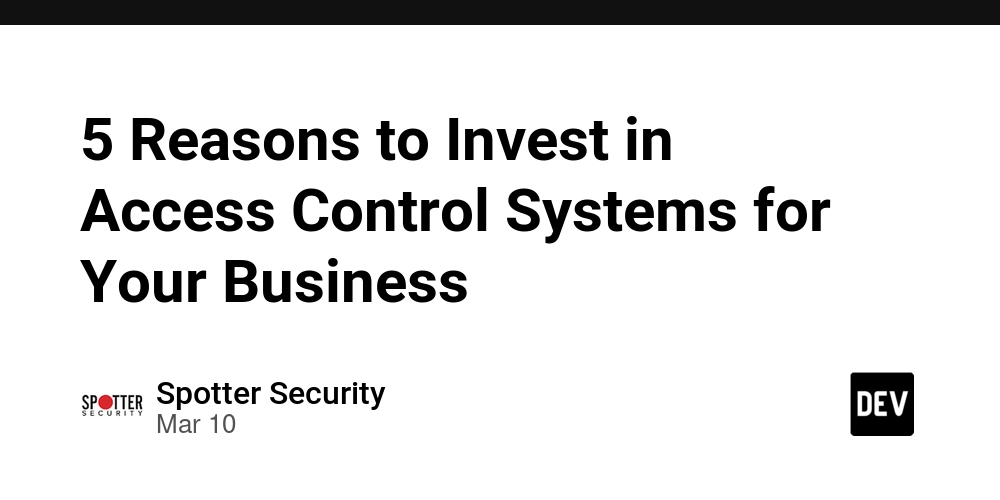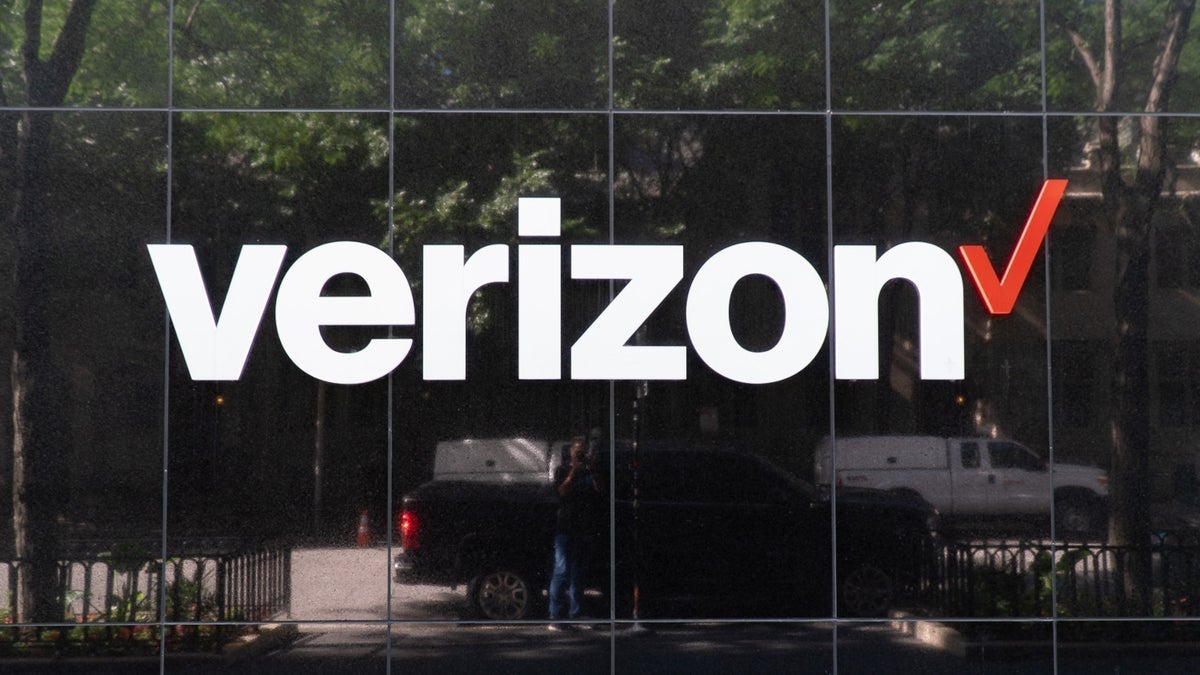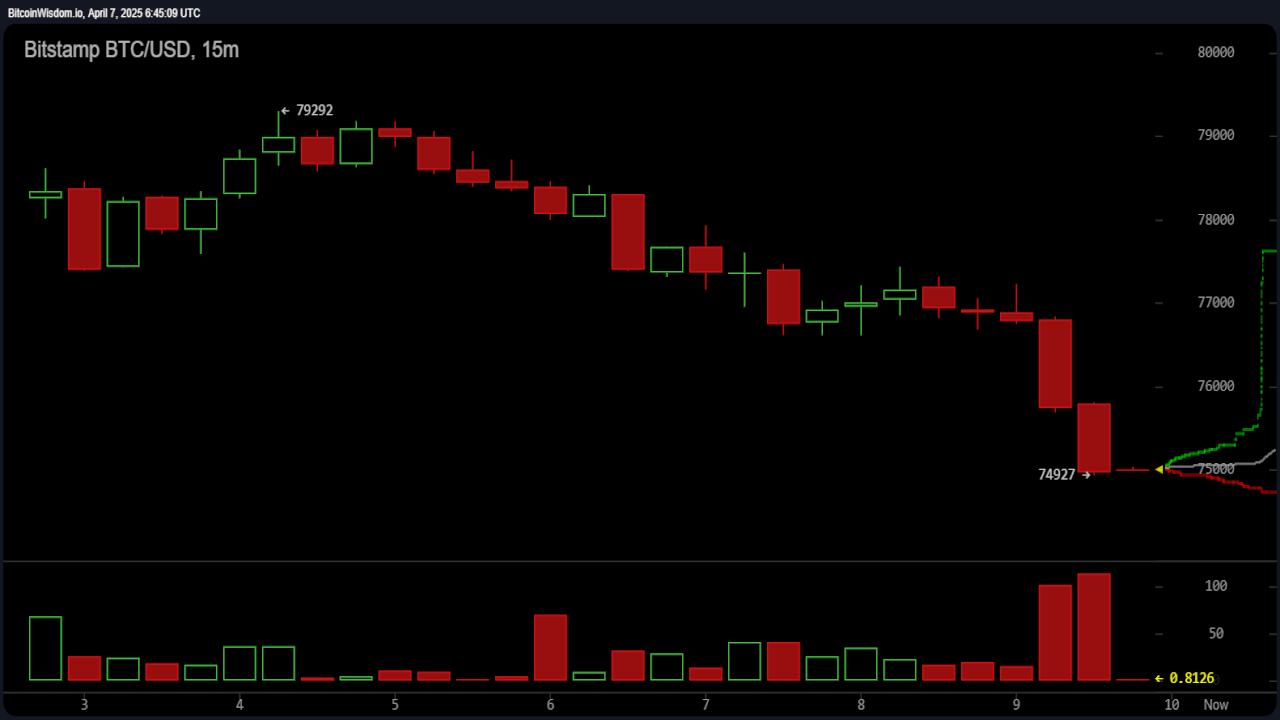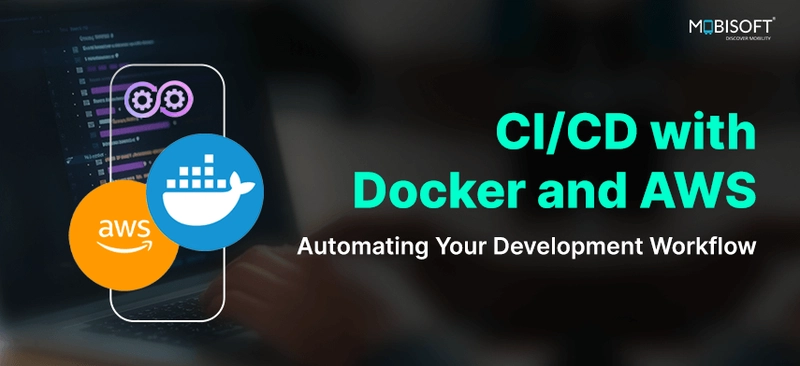5 Reasons to Invest in Access Control Systems for Your Business
"Security is always excessive until it’s not enough." – Robbie Sinclair, Head of Security, Country Energy. Imagine walking into your business one morning to find that an unauthorized person has gained access overnight. Stolen assets. Compromised data. A breach of trust. It’s a nightmare scenario, but one that happens far too often. In fact, businesses without proper access control are four times more likely to experience security breaches. An access control system isn’t just about keeping doors locked—it’s about protecting what matters most while streamlining operations. Whether you manage a small office or a large facility, the right system can reduce risk, improve efficiency, and even save money in the long run. In this article, we’ll break down five compelling reasons why investing in access control isn’t just smart—it’s essential. 1. Enhanced Security and Risk Management Security threats come in many forms, from unauthorized intrusions to employee theft. A traditional lock and key system is easy to bypass and difficult to manage. Access control systems eliminate these vulnerabilities by using key cards, biometric scanners, or mobile credentials to restrict access. With real-time tracking, you’ll know exactly who enters and exits your building at all times. If an employee leaves the company, access can be revoked instantly—no need to track down keys or change locks. This significantly reduces the risk of break-ins, data breaches, and internal threats. 2. Better Control Over Employee and Visitor Access Not everyone in your company needs access to every area. With an access control system, you can set customized permission levels based on roles. For example, your IT team might have access to server rooms, while warehouse employees are restricted from entering executive offices. This level of control extends to visitors as well. Instead of handing out physical keys or relying on a receptionist to monitor access, you can issue temporary digital credentials that expire after a set period. This ensures that only authorized personnel are on-site at any given time. 3. Improved Operational Efficiency Managing physical keys is not only inconvenient but also costly. Employees lose them, duplicates need to be made, and locks have to be replaced. An access control system eliminates these issues while streamlining entry and exit processes. Integrating access control with other systems, such as payroll or attendance tracking, can further boost efficiency. Employees can clock in and out seamlessly, reducing administrative workload and improving record accuracy. 4. Regulatory Compliance and Liability Reduction Many industries have strict security regulations, from healthcare to finance. Implementing an access control system helps businesses stay compliant with standards like HIPAA, PCI-DSS, and GDPR by securing sensitive areas and logging access activity. Beyond compliance, access control reduces liability risks. If an incident occurs—such as theft or workplace violence—you’ll have a detailed audit trail to review, aiding investigations and preventing future breaches. 5. Cost Savings in the Long Run While the upfront cost of installing an access control system may seem high, it pays off in the long run. Here’s how: Reduced losses from theft and security breaches Lower costs on rekeying locks and replacing keys Fewer disruptions from unauthorized access Improved energy efficiency by integrating access control with lighting and HVAC systems By preventing unauthorized access, businesses avoid costly incidents that could impact their bottom line. The system essentially pays for itself over time. Turnstile Security Gates For businesses that require a higher level of physical security, Turnstile Security Gates offer an excellent solution. These gates provide controlled access by allowing only one person to enter at a time, significantly reducing the risk of tailgating and unauthorized entry. Unlike traditional doors, they create a secure checkpoint that integrates seamlessly with access control systems. Many companies use Turnstile Security Gates in lobbies, stadiums, and high-security facilities to ensure that only authorized personnel or ticketed guests gain entry. Their durable design and automated functionality make them a cost-effective and highly efficient security measure for businesses of all sizes. Conclusion Investing in an access control system is one of the smartest decisions a business can make. It enhances security, improves operational efficiency, and ensures compliance with industry regulations. More importantly, it gives business owners peace of mind knowing that their assets, employees, and sensitive data are protected. If you’re looking for a reliable and scalable solution, partnering with a Security System Company Kitchener can help you implement the right access control system tailored to your needs. The future of

"Security is always excessive until it’s not enough." – Robbie Sinclair, Head of Security, Country Energy.
Imagine walking into your business one morning to find that an unauthorized person has gained access overnight. Stolen assets. Compromised data. A breach of trust. It’s a nightmare scenario, but one that happens far too often. In fact, businesses without proper access control are four times more likely to experience security breaches.
An access control system isn’t just about keeping doors locked—it’s about protecting what matters most while streamlining operations. Whether you manage a small office or a large facility, the right system can reduce risk, improve efficiency, and even save money in the long run. In this article, we’ll break down five compelling reasons why investing in access control isn’t just smart—it’s essential.
1. Enhanced Security and Risk Management
Security threats come in many forms, from unauthorized intrusions to employee theft. A traditional lock and key system is easy to bypass and difficult to manage. Access control systems eliminate these vulnerabilities by using key cards, biometric scanners, or mobile credentials to restrict access.
With real-time tracking, you’ll know exactly who enters and exits your building at all times. If an employee leaves the company, access can be revoked instantly—no need to track down keys or change locks. This significantly reduces the risk of break-ins, data breaches, and internal threats.
2. Better Control Over Employee and Visitor Access
Not everyone in your company needs access to every area. With an access control system, you can set customized permission levels based on roles. For example, your IT team might have access to server rooms, while warehouse employees are restricted from entering executive offices.
This level of control extends to visitors as well. Instead of handing out physical keys or relying on a receptionist to monitor access, you can issue temporary digital credentials that expire after a set period. This ensures that only authorized personnel are on-site at any given time.
3. Improved Operational Efficiency
Managing physical keys is not only inconvenient but also costly. Employees lose them, duplicates need to be made, and locks have to be replaced. An access control system eliminates these issues while streamlining entry and exit processes.
Integrating access control with other systems, such as payroll or attendance tracking, can further boost efficiency. Employees can clock in and out seamlessly, reducing administrative workload and improving record accuracy.
4. Regulatory Compliance and Liability Reduction
Many industries have strict security regulations, from healthcare to finance. Implementing an access control system helps businesses stay compliant with standards like HIPAA, PCI-DSS, and GDPR by securing sensitive areas and logging access activity.
Beyond compliance, access control reduces liability risks. If an incident occurs—such as theft or workplace violence—you’ll have a detailed audit trail to review, aiding investigations and preventing future breaches.
5. Cost Savings in the Long Run
While the upfront cost of installing an access control system may seem high, it pays off in the long run. Here’s how:
- Reduced losses from theft and security breaches
- Lower costs on rekeying locks and replacing keys
- Fewer disruptions from unauthorized access
- Improved energy efficiency by integrating access control with lighting and HVAC systems
By preventing unauthorized access, businesses avoid costly incidents that could impact their bottom line. The system essentially pays for itself over time.
Turnstile Security Gates
For businesses that require a higher level of physical security, Turnstile Security Gates offer an excellent solution. These gates provide controlled access by allowing only one person to enter at a time, significantly reducing the risk of tailgating and unauthorized entry. Unlike traditional doors, they create a secure checkpoint that integrates seamlessly with access control systems. Many companies use Turnstile Security Gates in lobbies, stadiums, and high-security facilities to ensure that only authorized personnel or ticketed guests gain entry. Their durable design and automated functionality make them a cost-effective and highly efficient security measure for businesses of all sizes.
Conclusion
Investing in an access control system is one of the smartest decisions a business can make. It enhances security, improves operational efficiency, and ensures compliance with industry regulations. More importantly, it gives business owners peace of mind knowing that their assets, employees, and sensitive data are protected. If you’re looking for a reliable and scalable solution, partnering with a Security System Company Kitchener can help you implement the right access control system tailored to your needs. The future of business security is digital, and the time to upgrade is now.
FAQs
How do access control systems work?
Access control systems use electronic methods—such as keycards, biometrics, or mobile credentials—to grant or restrict entry to designated areas. They track and log all entries and exits in real time.
What types of businesses benefit from access control systems?
Any business, from small offices to large corporations, benefits from access control. Industries like healthcare, finance, manufacturing, and retail particularly require high-security solutions.
Are access control systems expensive?
While there is an initial investment, access control systems save businesses money in the long run by reducing theft, rekeying costs, and security risks.
Can access control integrate with other security systems?
Yes! Access control can be integrated with surveillance cameras, alarms, time-tracking systems, and even HVAC systems for seamless operations.
How do I choose the right access control system for my business?
Factors like business size, security needs, budget, and integration capabilities should be considered. Consulting with a professional security provider can help identify the best solution.









































































































































































![[The AI Show Episode 142]: ChatGPT’s New Image Generator, Studio Ghibli Craze and Backlash, Gemini 2.5, OpenAI Academy, 4o Updates, Vibe Marketing & xAI Acquires X](https://www.marketingaiinstitute.com/hubfs/ep%20142%20cover.png)































































































































![[DEALS] The Premium Learn to Code Certification Bundle (97% off) & Other Deals Up To 98% Off – Offers End Soon!](https://www.javacodegeeks.com/wp-content/uploads/2012/12/jcg-logo.jpg)

![From drop-out to software architect with Jason Lengstorf [Podcast #167]](https://cdn.hashnode.com/res/hashnode/image/upload/v1743796461357/f3d19cd7-e6f5-4d7c-8bfc-eb974bc8da68.png?#)







































































































.png?#)



































_Christophe_Coat_Alamy.jpg?#)
.webp?#)
.webp?#)








































































































![Apple Considers Delaying Smart Home Hub Until 2026 [Gurman]](https://www.iclarified.com/images/news/96946/96946/96946-640.jpg)
![iPhone 17 Pro Won't Feature Two-Toned Back [Gurman]](https://www.iclarified.com/images/news/96944/96944/96944-640.jpg)
![Tariffs Threaten Apple's $999 iPhone Price Point in the U.S. [Gurman]](https://www.iclarified.com/images/news/96943/96943/96943-640.jpg)




































































































































